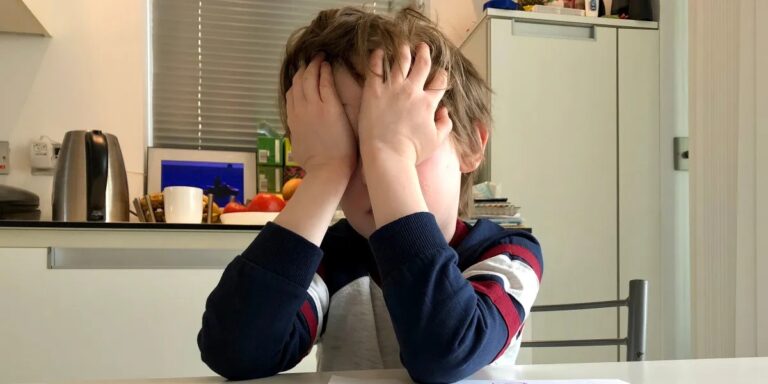Kelly Clarkson’s Honest Thoughts on Spanking: A Parenting Debate Unfolds

A few weeks ago, singer and mother of two Kelly Clarkson stirred a passionate conversation on the radio when she aired her opinions on child discipline, specifically spanking. She was concerned about the use of physical punishment on children.
Clarkson, who is known for her forthrightness, has freely addressed her thoughts on the contentious issue, and she has even disclosed that she does not mind physically correcting her children when they behave inappropriately. In a short amount of time, this candid statement captured the attention of listeners as well as the media, which in turn sparked a discussion regarding whether or not spanking is an appropriate means of disciplining children.

Despite the fact that Clarkson’s remarks were extremely personal, they brought up a more general topic regarding parenting strategies. During the course of her chat, she shared that she is a firm believer in the use of physical punishment as a means of imparting the knowledge of right and wrong to her children.
The statements made by Clarkson struck a chord with a number of parents, causing them to agree with her view on the use of physical punishment. While some parents believe that spanking may be a helpful technique for maintaining discipline and ensuring that children understand the consequences of their actions, they believe that it is only successful when it is done in the appropriate manner.

On the other hand, Clarkson’s opinions also resulted in a significant response. There is a significant amount of opposition against the practice of spanking among parents and professionals in the field of child development, including organizations such as the American Academy of Pediatrics. As a major authority on child health, the American Academy of Pediatrics (AAP) has made it very obvious that spanking is neither an effective nor a good method of instilling discipline in children.
They contend that the use of physical punishment can have a negative impact on the mental and emotional development of a kid, which may result in increasing levels of violent behavior and anxiety. Some people are concerned that the use of spanking can damage the relationship between a parent and their child by establishing fear rather than fostering a healthy and respectful dynamic.

Clarkson has not provided any form of apology for her viewpoint, despite the backlash she has received. In her explanation, she stated that her upbringing in Texas, where the use of physical punishment was a prevalent practice, had a significant impact on her perspectives toward discipline.
Clarkson contemplated the ways in which her parents had employed physical punishment and how it had played a role in molding her into the person she is now. It is a practice that she feels comfortable with when it comes to raising her own children, despite the fact that she is aware of the current controversy regarding spanking. She believes that it is a part of her culture and her upbringing, which is why she feels comfortable with it.

However, Clarkson is also aware of the challenges that are associated with discipline in the modern world. She freely confesses that it can be difficult to instill discipline in her children while she is in public, where she may be subjected to criticism or suspicion from other people. The fact that Clarkson is conscious of how her actions can be seen by the general public adds an additional layer of complexity to the decisions that she makes regarding her parenting life.
Consequently, she places a strong emphasis on the significance of maintaining a balance between communication and discipline. The use of physical punishment is something that she does only as a last resort, and only after she has provided her children with explicit warnings and explanations for their actions.

The difficulties that are associated with being a parent in today’s culture are demonstrated by the discourse that was created by Clarkson’s radio appearance. How difficult it may be to navigate the best ways to raise children is highlighted by the fact that parenting practices are continuously evolving, and the varied viewpoints around punishment make it clear how difficult it can be.
Some parents may agree with Clarkson’s approach and believe that physical punishment is an essential tool. On the other hand, some parents may favor non-physical approaches, such as timeouts, positive reinforcement, or setting clear expectations without the use of physical repercussions.

Clarkson’s willingness to be transparent about the parenting decisions she has made has also helped to a more extensive conversation on the myriad of approaches that parents might choose to punish their children. In doing so, it highlights the fact that there is no universally applicable parenting style, and that what is successful for one family might not be appropriate for another.
Clarkson has developed a space for parents to reflect on their own approaches to discipline and to explore the significance of communication, empathy, and understanding in the process of molding their children’s conduct. This space was made by Clarkson by expressing her views.

The statements made by Clarkson, in the end, serve as a reminder of the continuous discourse that is taking place over parenting approaches, particularly with regard to the practice of discipline. Her honesty has spurred a much-needed discussion about how to find the correct balance between setting limits and cultivating a loving and respectful connection with children.
Although opinions on spanking may vary considerably, her openness has provided the impetus for this discussion. At the end of the day, Clarkson’s statements encourage parents to give serious consideration to the principles that they wish to inculcate in their children as well as the influence that the techniques of punishment they employ will have on the emotional well-being of their children.






